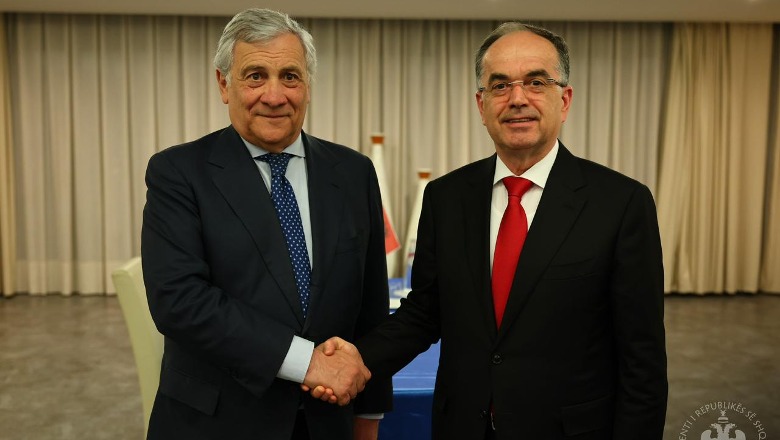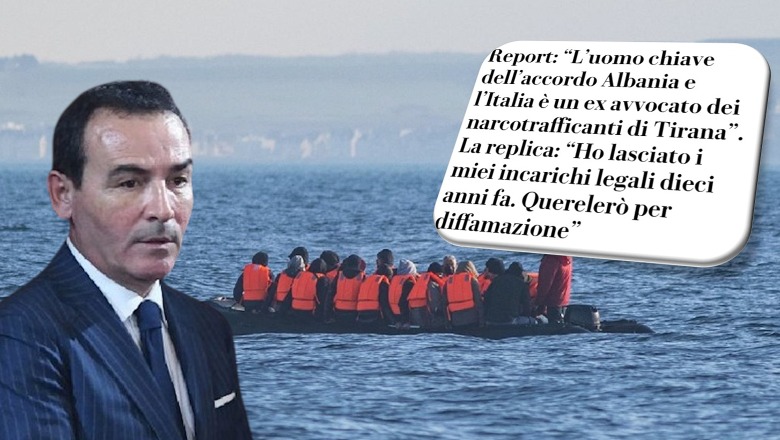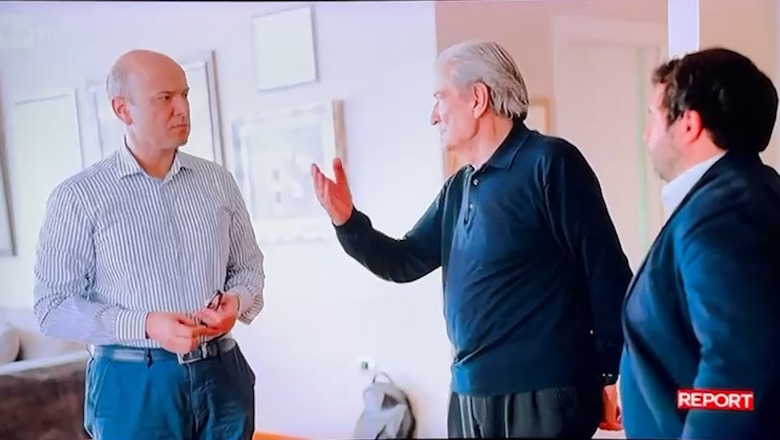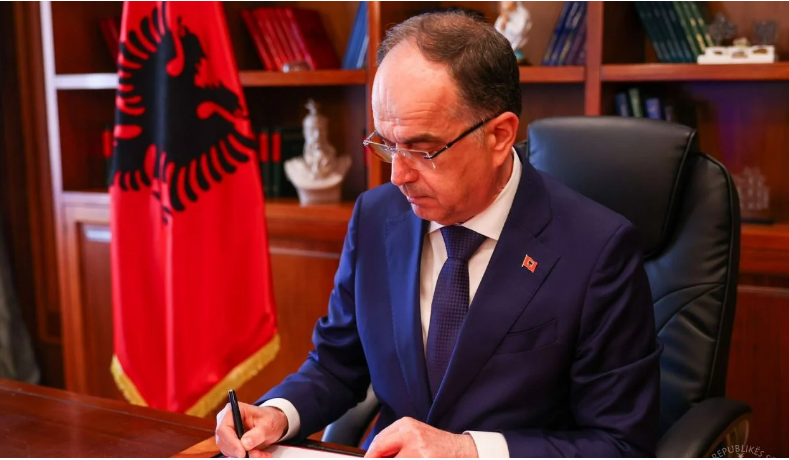hat diese Mafia Präsident unterschrieben, als er noch Generalstaatschef war
Crotone, tolle Leute, aber unter der Kontrolle der ’Ndrangheta‘ https://de.wikipedia.org/wiki/%E2%80%99Ndrangheta
Beschlagnahme des gestohlenen Marina Hafens, bei Sarande vor wenigen Tagen, der Kastriati Gruppe, bekannt für illegales Bauen und Öl Schmuggel
„Der Marinestützpunkt der Armee in Sarande, wird beschlagnahmt“ Ein Mafia Geschäft von „Kastrati Group“ sh.a. Army naval base under seizure, VOA: SPAK investigates the privatization of Limion in Saranda Alle Dokumente gefälscht, gerade rund um die „Kastrati Group“ sh.a. und Phantasie Firmen. Die Sonderstaatsanwalt, beschlagnahmt Alles dort. Die Kastriati Brüder betrieben für Berisha, Ridvan Bode schon … Beschlagnahme des gestohlenen Marina Hafens, bei Sarande vor wenigen Tagen, der Kastriati Gruppe, bekannt für illegales Bauen und Öl Schmuggel weiterlesen
Politikë
Begajt i jepet titulli ‚Qytetar Nderi‘ nga arbëreshët e Kalabrisë: Përgjegjësi dhe angazhim për të vijuar nismën
Presidenti i Republikës, Bajram Begaj nga dita e sotme është “Qytetar Nderi” i arbëreshëve të Kalabrisë. Këtë titull, të parit të shtetit, ia dhuroi Pallagorio, komunë në Provincën e Krotones.
Presidenti Begaj ‚Qytetar Nderi‘
Presidenti i Republikës, Bajram Begaj nga dita e sotme është “Qytetar Nderi” i arbëreshëve të Kalabrisë. Këtë titull, të parit të shtetit, ia dhuroi Pallagorio, komunë në Provincën e Krotones.
Këshilli i kësaj komune i drejtuar nga kryebashkiaku Umberto Lorecchio, vendosi me unanimet të plotë të nderojë Presidentin e Republikës, Bajram Begaj, me titullin “Qytetar Nderi”, i Pallagorios.
Presidenti Begaj shprehu mirënjohjen e tij më të thellë duke theksuar se, e çmon jashtëzakonisht respektin dhe vlerësimin e tyre.
EXO EDHE:
Presidenti Begaj takon Tajanin: Italia, partner i pazëvendësueshëm strategjik
„Ju siguroj – u shpreh Presidenti Begaj-që do të vijoj angazhimin tim e të institucionit që drejtoj, për të zhvilluar më tej marrëdhëniet midis arbëreshëve dhe shqiptarëve”.
Kryetari i Shtetit e cilesoi nderimnin e sotëm nga arbëreshët e Pallagorios, “si një nga momentet në jetë që të shenjon shumë fort, të lë mbresa të pashlyeshme, por edhe është një përgjegjësi dhe angazhim për të vijuar nismat për Arbërinë.”

Criminal Amnesty law is decreed after signature by President Begaj – articles
Albanian President of the Republic, Bajram Begaj, signed today the decree for the criminal amnesty, which was approved a few days ago in the Assembly.












Du muss angemeldet sein, um einen Kommentar zu veröffentlichen.